Morung Express news
Dimapur | September 30
Any person is a potential leader but ‘Who is a public leader?’ This was the theme around which the Morung Lecture XVI on September 29 pivoted around, with three established personalities on the panel.
The speakers were Bano Haralu, a conservationist and senior journalist; and two academics— Dr Kekhrie Yhome and Dr Pangernungba Kechu. Dr Yhome holds a doctorate on ‘the problems of western thought systems’ and is also the chairperson of the Nagaland Building and Other Constructions Workers Welfare Board. Dr Kechu is a professor of Society, Christian Ethics and Contextual Theology at the Oriental Theological Seminary.
Leadership & inclusivity
Bano Haralu delved into the qualities that a public leader should possess, which in general includes commitment and principles. She noted that many leaders today have the influence to affect change, “yet have failed our communities” by undermining effective governance.
In the context of Nagaland, Bano said that the people look for leaders, who will lead the public to a freer and more prosperous life. “In the values that we look at a public leader,” she said that believing in the importance of truth and knowledge has implication for both individual and public policy.
“A public leader who supports inquiry and analysis and respects the resulting evidence has a fairer chance of taking the right decisions,” she said. She added that having the gumption to absorb, not only praise but also criticism remains another important value of a public leader.
She pointed to inclusivity or lack thereof in decision-making as a bog stumbling block in the Naga society. While maintaining that gender should not feature in the definition of leadership qualities, she said, “Women continue to be in the periphery of political and economic decisions.” According to her, it is a moral imperative of public leaders towards building a cohesive society.
Leadership rebranding
According to Dr Yhome, leadership today need rebranding, shifting from “the politics of regret to a new legitimisation and collective memory.”
He pointed out paradoxes evident in the brand of leadership, where youths are called the future of the Nagas but in reality not given the opportunity and organisations issuing ultimatums without obligation to owning responsibility.
In all these issues of “who owns the community, who runs the government or who leads the church,” he noted the presence of trust deficit and “our inability to transform but also to adapt.”
According to him, when one talks of leadership, comes forth the question of representation or “numerical relations.” He cited Gottfried Wilhelm Leibniz’s Transcendental Law of Homogeneity and the Cantorian Set Theory.
He further said that changes are also visible in the “morphology of leadership from the traditional to what is today.”
According to him, through the emergence of biopolitics, there has also been inclination towards welfare than maintaining a large army for war or otherwise which was largely the trend in the past.
Crisis of leadership
“In order to understand who a public leader is, we need to start with the acknowledgement that there is indeed crisis although there are lot of opportunities and positive energies and initiative,” said Dr Kechu. The perceived crisis, however, is “a part of the change we are going through as a people,” he said.
The crisis of leadership that is seen today, Kechu said, “Has to be viewed in the context of what we are experiencing as a people and society.” “If one were to say that we lack who can guide us is a reflection of a larger crisis that we are undergoing, we also need to get into analysis of facts.”
He said that unless “we seek to understand where our society is today, the kind of leaders we have today, we cannot arrive at the kind of leaders we desire for the society at large.”
According to him, the long term approach to building a public leadership would be to create a movement of awareness and education at various levels, while the immediate approach would be to ask, “What kind of leaders do we need?” “We also need Naga leaders who while affirming the unique identity of every village or tribe, can rally people towards a transcending narrative, allowing people to come together to work for a common space.”
The notion of leadership today, he said are those who have money and social power and in the process “wasted our public leaders to too much power.”
As far as electoral leadership was concerned, he said that immediate intervention is required in supporting candidates, who have the right values and “who can lead us with new visions by nurturing commitments and convictions together.”
He added, “We need a U-turn and need leaders that emerges from the crisis of the community.”
Source: https://morungexpress.com/an-idea-of-a-leadership-built-around-values-versus-power







 An orbiting message of peace
An orbiting message of peace The last Konyak headhunters of Nagaland
The last Konyak headhunters of Nagaland What Does Your Face Say About Your Health?
What Does Your Face Say About Your Health? Meet R.N. Ravi, who is mediating peace with the Nagas
Meet R.N. Ravi, who is mediating peace with the Nagas





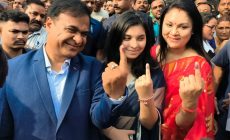
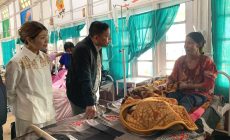
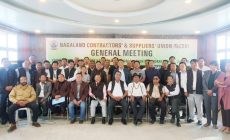
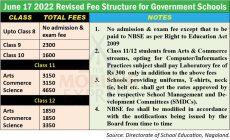
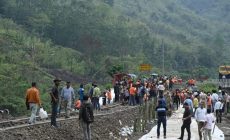
Leave a Reply
Your email address will not be published. Required fields are marked (required)